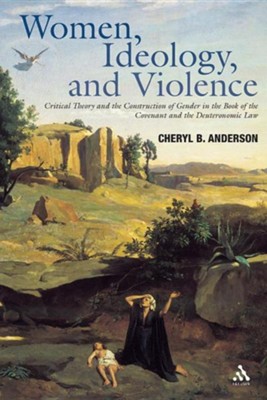Add To Cart
or checkout with

| Title: Women, Ideology, and Violence: Critical Theory and the Construction of Gender in the Book of the Covenant and the Deuteronomic Law By: Cheryl Anderson Format: Paperback Number of Pages: 148 Vendor: T&T Clark Publication Date: 2005 | Dimensions: 9.22 X 6.30 X 0.51 (inches) Weight: 9 ounces ISBN: 0567082520 ISBN-13: 9780567082527 Stock No: WW082527 |
Cheryl Anderson examines the laws relating to women that are found in the Book of the Covenant and the Deuteronomic law. She argues that the laws can be divided into those that treat women similarly to men (defined as 'inclusive' laws) and those that treat women differently ('exclusive' laws). She then suggests that the exclusive laws, which construct gender as male dominance/female subordination, do not just describe violence against women but are inherently violent toward women. As a non-historical critique of ideology, critical theory is used to offer analytical insights that have significant implications for understanding gender constructions in both ancient and contemporary settings.
What would you like to know about this product? Please enter your name, your email and your question regarding the product in the fields below, and we'll answer you in the next 24-48 hours.
If you need immediate assistance regarding this product or any other, please call 1-800-CHRISTIAN to speak directly with a customer service representative.